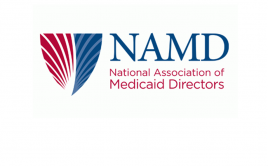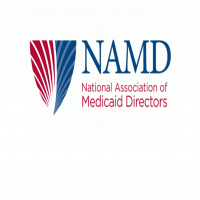Medicaid Directors Association Urges Quick Funding, HHS Data on Providers

It should come as no surprise that that there are an extraordinary amount of requests nationwide for federal aid in light of the COVID-19 pandemic. Somewhat ironically, among those in particularly need are those providing health care services to the needy – Medicaid providers.
In a letter sent this week to the Department of Health and Human Services (HHS), the National Association of Medicaid Directors (NAMD) urged HHS to collaborate immediately with Medicaid directors to quickly disburse congressionally appropriated funds, such as those under the Coronavirus Aid, Relief, and Economic Security Act (CARES Act) (Pub. L. 116-136), to critical Medicaid providers “within the next two weeks.” NAMD also seeks greater transparency from HHS on the specific funding amounts awarded to specific providers, which in turn will inform state decisions on additional fiscal relief.
“HHS’s allocation priorities and information sharing to date have not met these needs,” the association added. “Medicaid provider networks are generally more fiscally fragile than those of other payors, further emphasizing the need for immediate action in the face of declining service utilization due to COVID-19.”
NAMD specifically wants HHS to work directly with state Medicaid agencies to obtain critical information to ensure the solvency of critical Medicaid providers at risk of imminent closure. This information includes (1) data to identify specific Medicaid providers in need in the state; (2) data to quantify the funding needed by the provider; and (3) the best mechanisms available to distribute funding from HHS to the provider.
NAMD stressed that along with institutionally-based providers “that may be more visible to federal data sources,” the list of providers also should include behavioral health providers, substance use disorder treatment providers, home- and community-based service providers, federally qualified health centers and rural health centers, children’s hospitals, nursing homes and other long-term care facilities, non-emergency medical transportation providers, school-based health service providers, pediatricians; and maternal health providers.
NAMD explained that Medicaid providers’ fiscal needs most likely will require additional actions by the state after congressional funds are allocated, and states may not duplicate funds available through congressional appropriations. “To ensure states have all the information necessary to make appropriate decisions about state-level funding mechanisms, HHS must provide states with granular data on specific funding awards to specific providers in the state,” NAMD added. “This should include any awards already made and all awards made in the future, and should be as close to real-time as possible. The aggregated funding amounts by state that are currently available are not sufficient for state planning purposes and may inadvertently lead states to duplicate funds provided by Medicare, the Federal Emergency Management Agency or other sources.”
Medicaid provider needs “are acute and urgent, and action cannot wait,” NAMD concluded.
Join us for our following Federal Grants Forums:
Federal Grants Forum: Virtual | May 13 – 14, 2020
Federal Grants Forum: Chicago, IL | August 12 – 14, 2020
Federal Grants Forum: Denver, CO | October 7 – 9, 2020
Learn more at http://grants.thompson.com/conferences.aspx.



